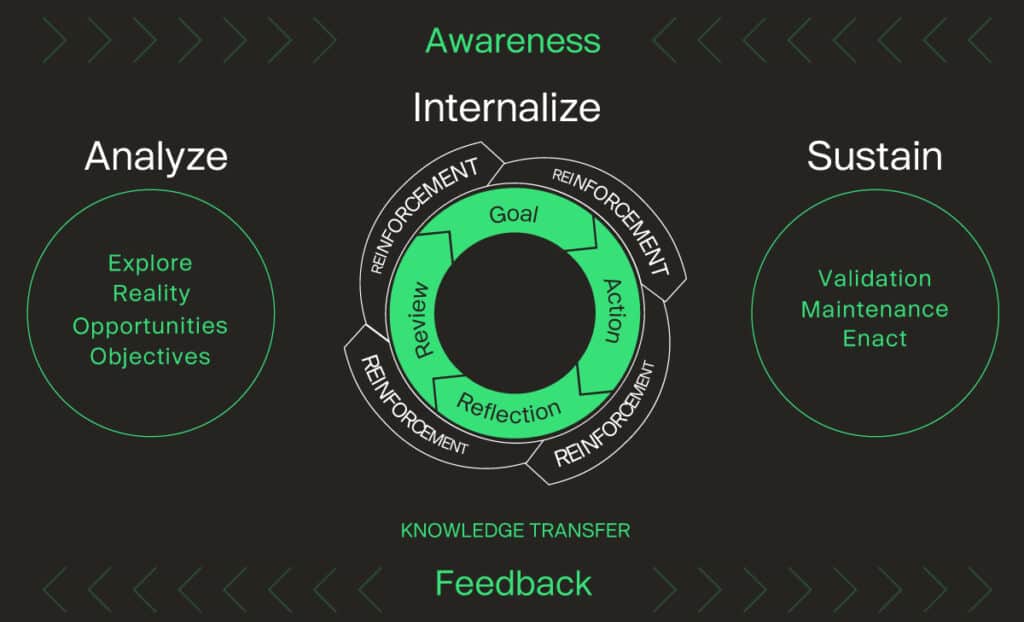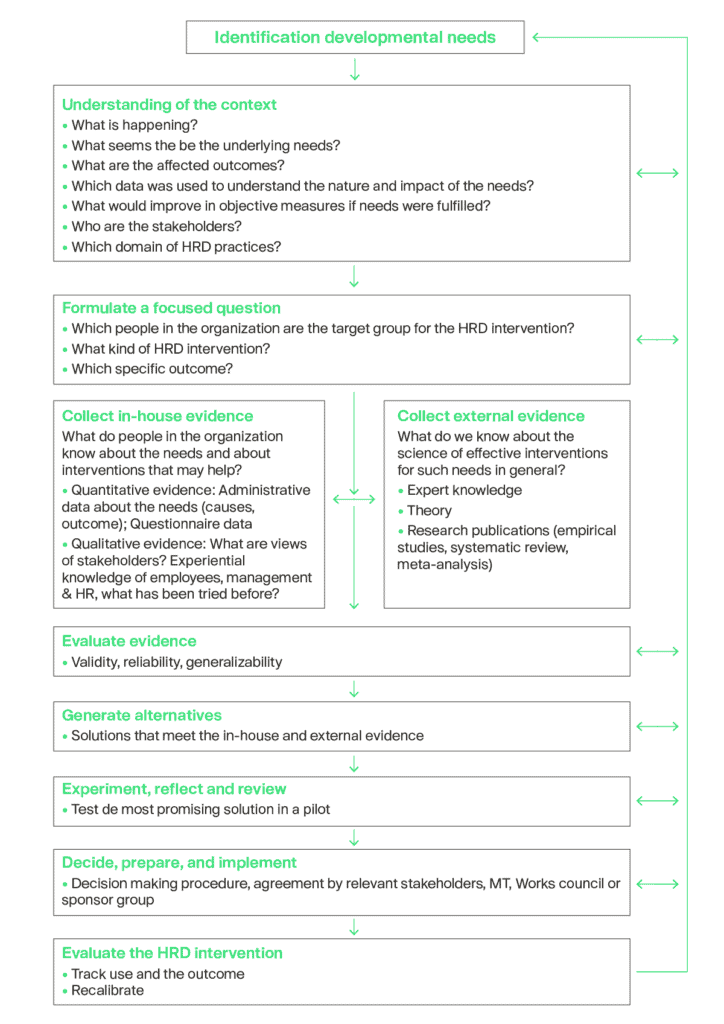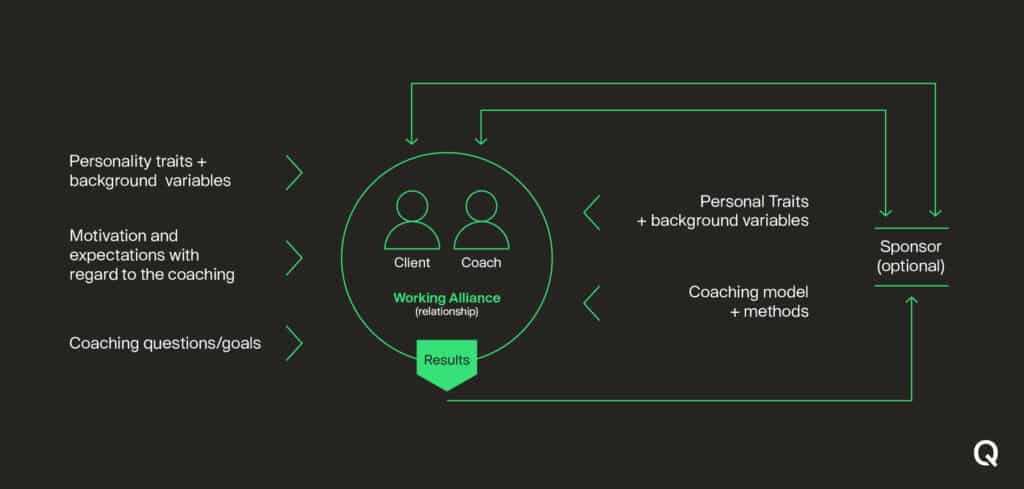The benefits of working evidence-based
Increased use of scientific knowledge to empirically underpin human resource management practices can benefit both the financial performance of an organisation and the well-being of its employees. That is why at UNLOQ we are keen to work according to an evidence-based approach, or at least an evidence-inspired one. Our mission statement says: ‘We learn and build on what is known’. In concrete terms, this means that we use the already existing knowledge of our clients, combined with the most recent insights from science.

The ABC model underpinning our approach
All our behavioural interventions, coaching and leadership development programmes are based on our ‘Accelerated Behavioural Change’ model. This model consists of three main phases. Within these phases, the process steps mentioned above are recognizable. The three phases are:
- Analyze: the desired development or outcome is mapped out. The why, with whom and how it can be achieved are identified.
- Internalize: experimenting with (new) behaviour in manageable steps. This takes place in the relevant context of the participant until the participant feel comfortable with the result.
- Sustain: the behaviour that leads to the preferred results consolidated and made sustainable.
In addition to these process steps, the model contains knowledge transfer, feedback and self-reflection elements that continuously foster the learning process.

The UNLOQ Evidence-based Design Process
We know that “one-size-fits-all” development paths ignore the relevant individual needs and the programme and organisational context and rarely achieve the desired results. That is why we work together and co-create highly effective development journeys.
Development Design Process
We do this in a scientific way by identifying the needs behind a development question, a problem statement, or a desired result. To this end, we use the ‘UNLOQ Evidence-based HRD Design Process’. This process consists of a number of steps:
- Understanding of the context
- Formulate a focused question
- Collect in-house and external evidence
- Evaluating evidence
- Generating alternative
- Experiment, reflect and review
- Considerations for implementation
- Evaluation the HRD practice
This process helps to design, implement and evaluate the most successful practices. Together with you, we assess what is needed, using the knowledge and expertise already present in your organisation in the relevant context and complemented by our profound know-how.
The above process is also reflected in our behavioural model and in the way we design our evaluations.
Our evaluation model for coaching
It is quite unusual in the coaching industry to evaluate a coaching programme with a scientifically validated instrument. We believe in transparency about the approach, the process and the results. Therefore, we use a comprehensive People Analytics tool packed with validated questionnaires.
People Analytics
This tool is based on our model for evidence-based coaching. This model outlines the factors that play a role in determining the effectiveness of coaching. These are:
- Factors related to the coach
- Factors related to the client
- The working relation between coach and client
- The final results of the coaching
- Evaluation by peers (optionally)
With our People Analytics tool we monitor our coaching interventions, measure progress and make results visible.




